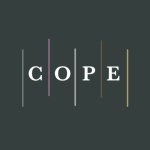Publication Ethics
The ethical policy of the Journal of Science and Knowledge Horizons is based on the recommendations of
JSKP Publishing Ethics and Integrity Statement
The Journal of Science and Knowledge Horizons (JSKP), published by the Faculty of Islamic Sciences and Civilization at the University of Laghouat, is built on a foundation of academic rigor and ethical dialogue. Our editorial team has developed this living document to articulate the specific principles and operational protocols that guide our ommunity—authors, reviewers, editors, and publishers. While our values align with the broad principles of international committees such as COPE, WAME, and ICMJE, this framework is the product of our internal deliberations and reflects the practical realities of managing a multidisciplinary journal in our academic context.
1. Core Editorial Principles at JSKP
1.1 Independence and Decision-Making
The Editor-in-Chief of JSKP holds final responsibility for the journal's academic content. All publication decisions are grounded in a double-blind peer-review process, a cornerstone of our commitment to impartiality. In practice, a manuscript typically requires two positive assessments from independent experts to be accepted for publication. Our editorial system logs every decision—be it acceptance, revision, or rejection—with specific feedback for authors. We may desk-reject submissions that fall outside our scope, lack preliminary quality, or raise immediate ethical flags (e.g., high similarity indices). In cases of conflicting reviews, the Editor-in-Chief or a designated third expert makes the final ruling.
1.2 Confidentiality and Security
We protect the integrity of the submission process. Each manuscript receives a unique ID and is handled within our secure editorial management system. Access follows a strict need-to-know basis. Our double-blind review protocol ensures that author and reviewer identities are concealed from each other; we require authors to anonymize their submissions before the review stage.
1.3 Commitment to Objectivity and Efficiency
JSKP evaluates manuscripts based on their intrinsic scholarly merit: originality, methodological soundness, clarity, and significance to our fields of interest. Author background or institution is not a consideration. We actively mitigate bias through our double-blind system and regular process audits. To maintain trust, we strive for an initial review cycle of 6-8 weeks. If delays exceed 12 weeks, our internal protocol triggers a reassignment of the manuscript to safeguard authors' rights.
2. Managing Conflicts of Interest: Our Protocol
2.1 For Our Editorial Team
All JSKP editorial board members submit an annual conflict-of-interest declaration. They must recuse themselves from handling any manuscript where (a) a collaborative or co-authorship relationship with the author existed within the past three years, (b) they share an institutional affiliation, or (c) they have a direct financial interest in the work. This recusal is formally documented, and the manuscript is reassigned.
2.2 For Submissions from Editors
Any submission from a JSKP editor or board member undergoes a fully independent review process. An external or deputy editor, with no connection to the author, manages all stages from reviewer selection to the final decision. A note is published with such articles to confirm this independent handling.
3. Upholding Publication Integrity: Post-Publication Actions
JSKP maintains a standing Integrity Committee (the Editor-in-Chief and two senior board members) to address post-publication concerns. Acting on COPE guidelines, the committee investigates credible complaints by contacting the corresponding author for a formal response. Possible outcomes include:
-
Correction: For minor, honest errors.
-
Expression of Concern: When unresolved serious doubts exist.
-
Retraction: For proven misconduct or fundamental error. A transparent retraction notice is published and linked to the original article.
We provide a channel for direct complaints to our editorial office, all treated confidentially and reviewed by the Integrity Committee.
4. Responsibilities of JSKP Authors
4.1 Originality and Scholarly Honesty
Every submission is screened using plagiarism detection software. At JSKP, a similarity index exceeding 20% (or >5% from a single source) triggers a mandatory manual inspection. Verified plagiarism results in immediate rejection and may lead to a submission ban for up to three years. We also audit reference lists for accuracy and relevance; citation manipulation is treated as a serious ethical breach.
4.2 Authorship, Funding, and AI Use
Authorship changes post-submission require exceptional justification and written consent from all co-authors. We mandate full disclosure of conflicts of interest and funding sources, following ICMJE standards; a summary is published with the article.
Transparency in AI Use: JSKP requires authors to explicitly disclose any use of AI tools (e.g., ChatGPT, Grammarly) in a dedicated section of the manuscript. This disclosure must name the tool, its version, its specific role (e.g., language polishing, data analysis), and describe how the authors verified the output. Authors retain full accountability for their work, and AI tools cannot be credited as authors.
4.3 Research Standards and Ethics
We encourage adherence to field-specific reporting guidelines (e.g., CONSORT, PRISMA) and data deposition in FAIR-aligned repositories. For clinical trials, JSKP mandates pre-registration in a WHO- or ICMJE-recognized registry (e.g., ClinicalTrials.gov); the trial number must be in the abstract.
Research involving humans or animals must include an "Ethical and Informed Consent" statement detailing the approving ethics committee, approval number, and compliance with the Declaration of Helsinki or ARRIVE guidelines. JSKP may request proof of consent or approval. We also require authors to flag any potential dual-use research of concern (DURC).
5. Responsibilities of JSKP Reviewers
Reviewers are required to complete a conflict-of-interest checklist before accepting a review assignment, confirming no recent collaboration, institutional overlap, or direct competition with the authors.
6. Appeal and Enforcement
Authors may appeal an editorial decision once, by submitting a detailed rebuttal to the Editor-in-Chief. Appeals without new substantive arguments are not considered; the decision of the assigned (uninvolved) editor is final.
Allegations of misconduct are investigated via a confidential, staged process following COPE flowcharts, potentially resulting in sanctions from a warning to a publication ban and institutional notification.
7. Publisher's Role
The JSKP publishing house, alongside the editorial board, is committed to preventing and addressing unethical practices. We take corrective actions—from corrections to retractions—in line with COPE guidelines to preserve trust in the scholarly record.






